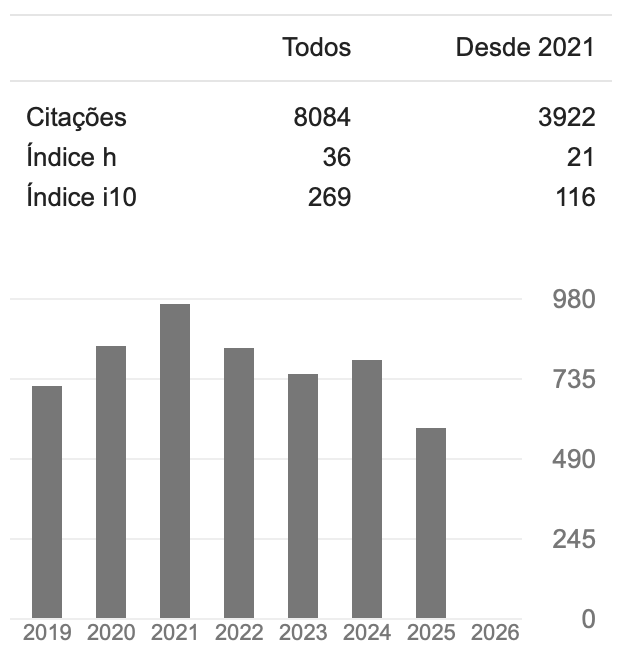Health-game: a serious game to inform about coronavirus and combat false information
DOI:
https://doi.org/10.17765/2176-9206.2023v16n1.e11194Keywords:
Covid-19, Gamification, Quiz, Regionalism, Serious GameAbstract
The market for digital games in Brazil has been growing prominently in recent years. In this area, educational games have been highlighted, which demonstrate positive results for the practice of gamification in the learning process. This article presents a serious quiz game that aims to inform you about the COVID-19, highlighting the importance of sharing truthful information about the virus. Making use of a methodology for regionalization of information with emphasis on everyday situations, thus intending to combat false information in a practical, scalable and playful way. The results, obtained from the validation with 30 students who tested the game, served as supporting material for improvements in the game and point out that, even using relatively simple and already usual techniques in the serious game scenario, it is possible to innovate in this field and provide society with a tool connected to the moment and difficulties it faces.Downloads
References
Organização Pan-Americana da Saúde - OPAS. Organização Mundial da Saúde - OMS. Repositório Institucional para Troca de Informações – Iris. Fichas Informativas COVID-19: entenda a infodemia e a desinformação na luta contra a COVID-19 [Internet]. Brasília: Organização Pan-Americana da Saúde; Available at: iris.paho.org/handle/10665.2/52054?locale-attribute=pt.
Xu F, Buhalis D, Weber J. Serious games e a gamificação do turismo. Tourism Management, 2017; 60, 244-56. https://doi.org/10.1016/j.tourman.2016.11.020.
Brasil. TrateCOV: aplicativo auxilia médicos no diagnóstico da Covid-19. 2021. Available at: www.gov.br/pt-br/servicos/solicitar-auxilio-emergencial-de-r-600-covid-19.
Kritz JS, Costa LM, Classe TM, Xexeo GB. Xô Corona: Aprendendo Medidas Preventivas da COVID-19 Através de Um Jogo. In: XIX Simpósio Brasileiro de Games e Entretenimento Digital (SBGames). Recife. Proceedings of SBGames 2020, 2020. p. 1-10. Available at: www.sbgames.org/proceedings2020/ArtesDesignShort/209629.pdf.
Gaspar JDS, Lage EM, Da Silva FJ, Mineiro É, De Oliveira IJR, Oliveira I, Reis, ZSN (2020). Um jogo sério móvel sobre a pandemia (COVID-19-Did You Know?): estudo de design e avaliação. JMIR serious games, 2020;8(4), e2522. https://doi.org/ 10.2196/25226.
Iná Elias de Castro, Revisitando o regionalismo como fundamento da questão regional, Confins [Online], 49, 2021, posto online no dia 15 de março de 2021, consultado em 03 de março de 2022. https://doi.org/10.4000/confins.35256.
Rotelli, E. Regonalismo”, In Bobbio, Norberto et al., Dicionário de Política, 5 ed. Editora UNB, p.1084-1087, 2004. Available at: educapes.capes.gov.br/bitstream/capes/701681/2/AEducacaonaContemporaneidade.pdf.
Souza Alba Regina Battisti de, Sartori Ademilde, Noronha ECS F. organizador. Formação docente e práticas pedagógicas: cenários e trajetórias. Florianópolis: UDESC; 2010. v. 01. 256p. Available at: revista.unitins.br/index.php/humanidadeseinovacao/article/view/4864.
Sutherland J, Sutherland JJ. SCRUM. A arte de fazer o dobro do trabalho na metade do tempo. Rio de Janeiro, Brasil: Editora Sextante; 2019. 01 de janeiro. Available at: https://edisciplinas.usp.br/pluginfile.php/4873827/mod_resource/content/2/Leit%2007%20-%20SUTHERLAND%20%282014%29%20Scrum%20-%20a%20arte%20de%20fazer%20o%20dobro%20-%20Jeff%20Sutherland.pdf.
Fundação Getúlio Vargas. Pesquisa Anual do Uso de TI. Disponível em: eaesp.fgv.br/producao-intelectual/pesquisa-anual-uso-ti.
Radoff J. Jogo ligado. Energize seu negócio com jogos de mídia social. John Wiley & Filhos; 2011.
Chou, Y. Actionable Gamification: Beyond Points, Badges and Leaderboards Capa comum. Plataforma de Publicação Independente Createspace; 2015.
Shirinian, A. A difícil fusão entre narrativa e jogabilidade, revista eletrônica Gamasutra, 2017
Unity Technologies. UNITY 3D. Available at: https://unity.com.
Microsoft. Visual Studio. Available at: https://visualstudio.microsoft.com.
Downloads
Published
How to Cite
Issue
Section
License
A submissão de originais para a revista Saúde e Pesquisa implica na transferência da Carta Concessão de Direitos Autorais, pelos autores, dos direitos de publicação digital para a revista após serem informados do aceite de publicação.A Secretaria Editorial irá fornecer da um modelo de Carta de Concessão de Direitos Autorais, indicando o cumprimento integral de princípios éticos e legislação específica. Os direitos autorais dos artigos publicados nesta revista são de direito do autor, com direitos da revista sobre a primeira publicação. Os autores somente poderão utilizar os mesmos resultados em outras publicações, indicando claramente a revista Saúde e Pesquisa como o meio da publicação original. Em virtude de tratar-se de um periódico de acesso aberto, é permitido o uso gratuito dos artigos, principalmente em aplicações educacionais e científicas, desde que citada a fonte. A Saúde e Pesquisa adota a licença Creative Commons Attribution 4.0 International.
A revista se reserva o direito de efetuar, nos originais, alterações de ordem normativa, ortográfica e gramatical, com vistas a manter o padrão culto da língua e a credibilidade do veículo. Respeitará, no entanto, o estilo de escrever dos autores. Alterações, correções ou sugestões de ordem conceitual serão encaminhadas aos autores, quando necessário. Nesses casos, os artigos, depois de adequados, deverão ser submetidos a nova apreciação. As opiniões emitidas pelos autores dos artigos são de sua exclusiva responsabilidade.

















